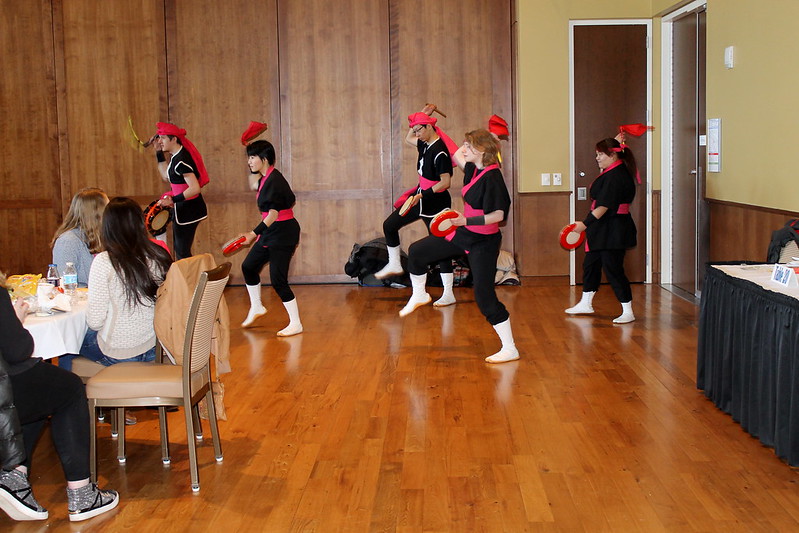By Benson Gardner, Wisconsin Department of Public Instruction
Original post at DPI-ConnectEd on March 19, 2015
So engaging are international topics — for a significant population of Wisconsin students — many had to be turned away from the third annual Wisconsin Global Youth Summit in Madison last month.

Gerhard Fischer, DPI international education consultant, feels the growing popularity of this event confirms that there is “enthusiasm for global learning” among Wisconsin students.
“I mean, 170 kids on a Saturday, for a full day? They don’t do that unless something interests them.”
And some students “may not even know yet that they’re interested” in international education if they haven’t experienced it very often, Fischer says.
Fischer says the Department of Public Instruction and the University of Wisconsin-Madison, which jointly organize the summit, had to cap attendance because of limitations on the time of volunteers needed to make the event run.

Students also met in small groups to talk about how to increase global awareness in their own communities. Kerry G. Hill of the UW-Madison Division for International Studies reports these “key themes emerged”:
- More academic opportunities to learn international languages, arts, culture, and sports, as well as non-American viewpoints in history and global issues.
- Boost global appreciation through new and existing organizations and events. Learn through cultural food events.
- Connect more through exchanges, pen pals, Skype, sister city partnerships, guest speakers, and collaborations with other students.
- Service projects, such as to teach languages to younger students, or to assist international populations, locally or worldwide.
- Visiting culturally diverse places, whether nearby -- like mosques, synagogues, museums, and ethnic restaurants – or abroad through service projects.
- More statewide conferences, like the Global Youth Summit, to help more students connect with like-minded peers, and perhaps take on collaborative projects.
Global competency, Fischer says, is “all about understanding different perspectives and where different people are coming from. Different folks in different parts of the world approach ... problems differently.”
He emphasizes that global learning is a method of student engagement that should be woven into other subject areas.
“It’s not an add-on, it is an approach to learning that should be natural. So as a science teacher if I don’t occasionally reference the real natural world beyond Lake Superior maybe I’m not doing it right. If as an economics teacher I’m not talking about the global economy, maybe I’m not doing my job. So, not, ‘Create a new course,’ just, ‘Work it in to what you’re doing.’ Teachers and students should routinely consider the global scope of various concepts, whenever it's relevant."





No comments:
Post a Comment
All comments are part of the public record. Comments will be approved and posted by the DPI provided they are suitable for general audiences (including young children); are not commercial in nature; do not contain abusive, profane, vulgar, or sexual content or language; and do not contain attacks on people or groups.